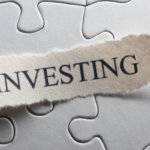A mutual fund is a professionally managed company that collects money from many investors and invests it in securities such as stocks, bonds and short-term debt, equity or bond funds and money market funds.
Mutual funds are a good investment for investors looking to diversify their portfolio. Instead of betting everything on one company or sector, a mutual fund invests in different stocks to try to minimize portfolio risk.
The term is typically used in the US, Canada and India, while similar structures around the world include the SICAV in Europe and the open-ended investment firm in the UK.
What is CAGR or annualized return?
The compound annual growth rate (CAGR) is a widely used return metric because it truly captures the year-on-year return earned by an investment, as opposed to absolute return which captures the point-to-point return of an investment without considering the time it takes to earn it.
CAGR is preferred because it allows you to compare returns between different asset classes by providing the average annual return earned from an investment based on the initial amount invested, the final value of the investment, and the expired period of time. If an investment of Rs1000 made 5 years ago is worth Rs.1800 today, while the absolute growth rate is 80%, its CAGR is the average return on investment earned each year. The CAGR runs out at 12.5%. If you were to compare this to an FD bank that promised 12.5% per year, CAGR makes it easier to compare.
Similarly, if you were to calculate the return earned from your investment after removing inflation, which is an annual figure of say 4%, CAGR makes it easier to calculate that you really earned 8.5% after removing inflation. The CAGR is useful when returns are compared over a period of more than one year. The investment may have yielded more than 12.5% in some years and less than 12.5% in other years, but on average it grew by 12.5% per year during the 5-year period.

